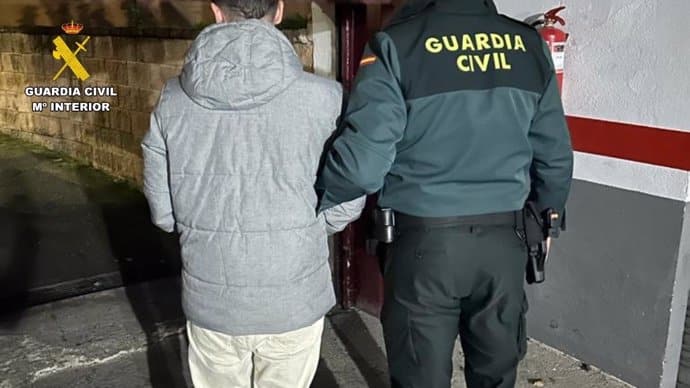
A 70-year-old man from Finland will appear in court on Monday accused of dismembering his partners body, that of a 68-year woman of the same nationality, before throwing it away in the rubbish. The murder took place back in October 2021 at the home where they both lived.
The charges claim that this was a preconceived crime, with the defendant himself writing in the diary of his mobile phone of his intention to torture his sentimental partner and end her life.
The Prosecutor’s Office considers that the accused prolonged the suffering of the victim; swindling, suffocating, torturing and stabbing her before throwing her remains in the trash.
Her remains were scattered around a number of containers located in different areas of the municipality.
The police first became aware when a homeless man who was searching among the garbage found a leg in the container. Thus began a frantic race to locate all the remains, with the victim’s head being found in a landfill many miles away, after it had been transferred there in a waste truck. There were a number of body parts that didn’t even show up.
A jury will try the man on Monday in the Alicante High Court for a brutal crime of macho violence that shocked the town of Torrevieja.
The Prosecutor’s Office is seeking a 25-year prison sentence for murder with the aggravating circumstances of torture.
In its indictment, the prosecution contends that the defendant’s actions were driven by motives of domination and economic gain. According to the defendant’s own account, which aligns with the accusations, while the two were alone, he attacked the victim, initiating a strangulation manoeuvre.
Armed with a knife, he stabbed her multiple times in various parts of her body, including the back, torso, and arm, with particular focus on the neck. This inflicted a severe and fatal injury, causing massive blood loss and leading to hypovolemic shock.
The Prosecutor’s Office argues that the number of stab wounds was excessive and inflicted unnecessary, extraordinary suffering, warranting the aggravating circumstance of cruelty.
Additionally, the prosecution asserts that the defendant had carefully devised a plan in the days leading up to the murder to ensure its execution, leaving the victim unable to defend herself. This premeditation supports the aggravating circumstance of felony.
After committing the murder, the defendant proceeded to dismember the victim’s body using a saw he had purchased earlier that afternoon from a nearby store. During the early hours of October 28, he began disposing of the body parts in various locations around the town to evade detection. The remains were discarded in separate containers, each approximately 500 meters apart.
A homeless man rummaging through the trash discovered the first body parts— the victim’s legs—inside one of the containers, where the right arm was also found. The pelvis was located at a campsite 600 meters away. The following morning, the defendant disposed of the internal organs in a different container. Despite his attempt to conceal the crime, security cameras in the area captured footage of the suspect discarding the remains.
The Civil Guard arrested the suspect as he wandered near one of the crime scenes, wearing the same clothes he had been seen wearing in the surveillance footage. This led to the discovery of additional parts of the victim’s body in his home, which he had not yet managed to dispose of. However, some parts of the corpse were never recovered, despite extensive searches conducted by the Civil Guard at the Xixona landfill, which ultimately proved unsuccessful.
Although the defendant confessed to the crime at the time of his arrest, it remains unclear what his statement will be at the start of the trial. Despite the brutality of the murder, forensic experts have found no evidence of any mental illness that could diminish his responsibility. They believe the defendant was fully aware of his actions.
If the defendant maintains his confession, the trial proceedings could be expedited, potentially eliminating the need for testimony from some of the summoned witnesses. The High Court has scheduled five days for the trial, with the final day reserved for the jury to deliberate and deliver its verdict.




